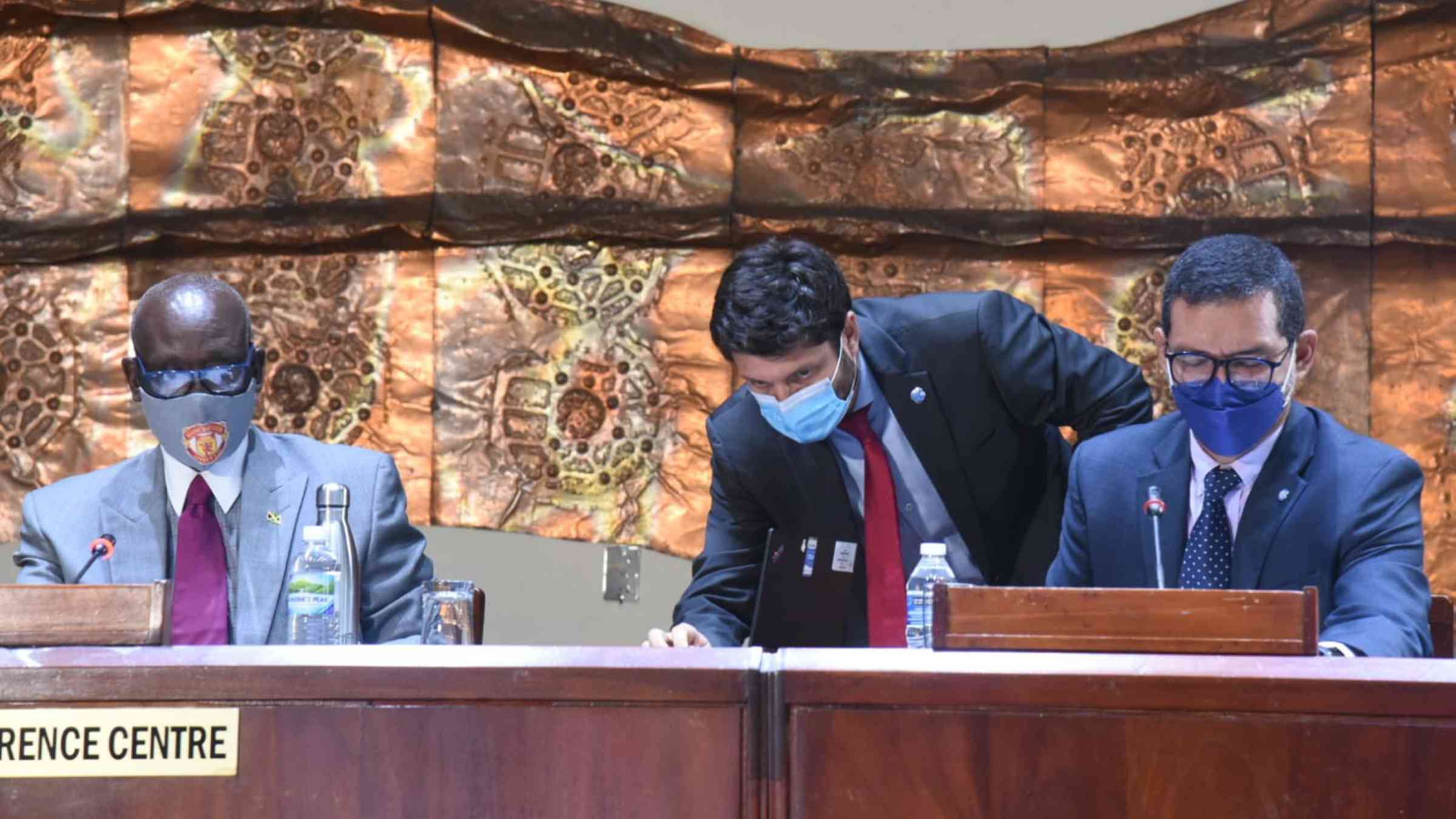Covid-19 recovery should not be wasted

Day Two of the Americas and Caribbean Regional Platform for Disaster Risk Reduction
JAMAICA – The Covid pandemic recovery provides a chance to implement green and sustainable economic and social policies, but it is far from certain that governments will seize the opportunity, a key international conference on disaster prevention was told.
Addressing the Vll Regional Platform for Disaster Risk Reduction the in Americas and the Caribbean, senior officials from the World Bank, the United Nations Development Programme (UNDP), the United Nations Office for Disaster Risk Reduction (UNDRR) and the Government of Guatemala warned that there could be no “business as usual” when it comes to stimulating global recovery from the pandemic.
“Covid provides a golden opportunity to address multiple risks, including the impact of climate change, to make our societies resilient. If don’t make the recovery ‘green’ and resilient and equitable, we are creating new risks,” said Mami Mizutori, Special Representative of the United Nations Secretary-General for Disaster Risk Reduction and head of the UNDRR.
The high-level panel addressed the theme of ‘Building resilient economies: building back better and greener, leaving no one behind’. Building back better after disaster is one of the four priorities of the international blueprint on disaster, the 2015 Sendai Framework, of which regional platforms constitute a key part.
For Seynabou Sakho, Director of Strategy and Operations for Latin America and the Caribbean, World Bank, it is more appropriate to talk of “building forward better” because policymakers everywhere should be aware that disaster risk prevention, sustainability, and protection for the most vulnerable needed to be a core part of recovery plans.
The Americas and the Caribbean region, one of the world’s most urbanized, has been the hardest hit by Covid, suffering high death rates and severe cuts to economic growth. Although the impact has differed across the region, many countries have seen a sharp increase in poverty, while the closure of schools to prevent the spread of infection is hurting the poorest sectors of society most.
“One of the lessons of Covid is that we are not prepared,” Seynabou Sakyo said. “We know that disasters and pandemics are going to come. The question then is how to be prepared, how to learn and how to change because this the biggest challenge.”
Luis Felipe López-Calva, Regional Director for Latin America and the Caribbean, United Nations Development Programme (UNDP), said that there is a need for a rethink of social and economic policies generally. “They need to be universal,” he said. “We need to improve rules and policy to achieve a more inclusive recovery.” Traditionally excluded groups must benefit from economic growth, but at the same time policies must be sustainable fiscally.
Guatemala “has risk management as a priority,” Luz Keila Virginia Gramajo Vilchez
Secretary of Planning and Programming, Presidency of Guatemala, told the session, held on the second day of the four-day conference.
She said that the country’s National Council for Climate Change ensured that there is coordination in planning to include risk management across all ministries. Climate change has also been incorporated into over 300 plans at municipal level, she added. But one of the great challenges that Guatemala and other Central American countries face is lack of financing for disaster prevention. Both Luis Felipe López-Calva and Seynabou Sakho stressed the need for new instruments for financing disaster prevention.
Mami Mizutori highlighted several steps required to ensure that disaster prevention is hardwired into government policy everywhere. Disaster risk reduction needs to be mainstreamed in public and private sector investment, and better tracking is needed of how money is spent to make sure investments reach their intended goals and beneficiaries. It is vital to work with the private sector because it is the private sector that is responsible for the bulk of investment, she added.
The Covid pandemic has boosted global awareness of disaster risk. “That has moved forward. But … the change of mindset has not yet been translated into action,” she Mami Mizutori declared.
Explore further
Also featured on
Is this page useful?
Yes No Report an issue on this pageThank you. If you have 2 minutes, we would benefit from additional feedback (link opens in a new window).
